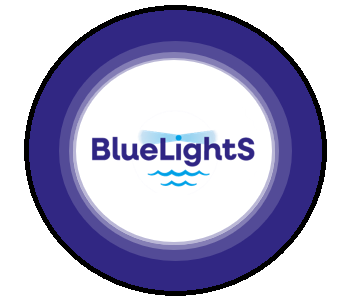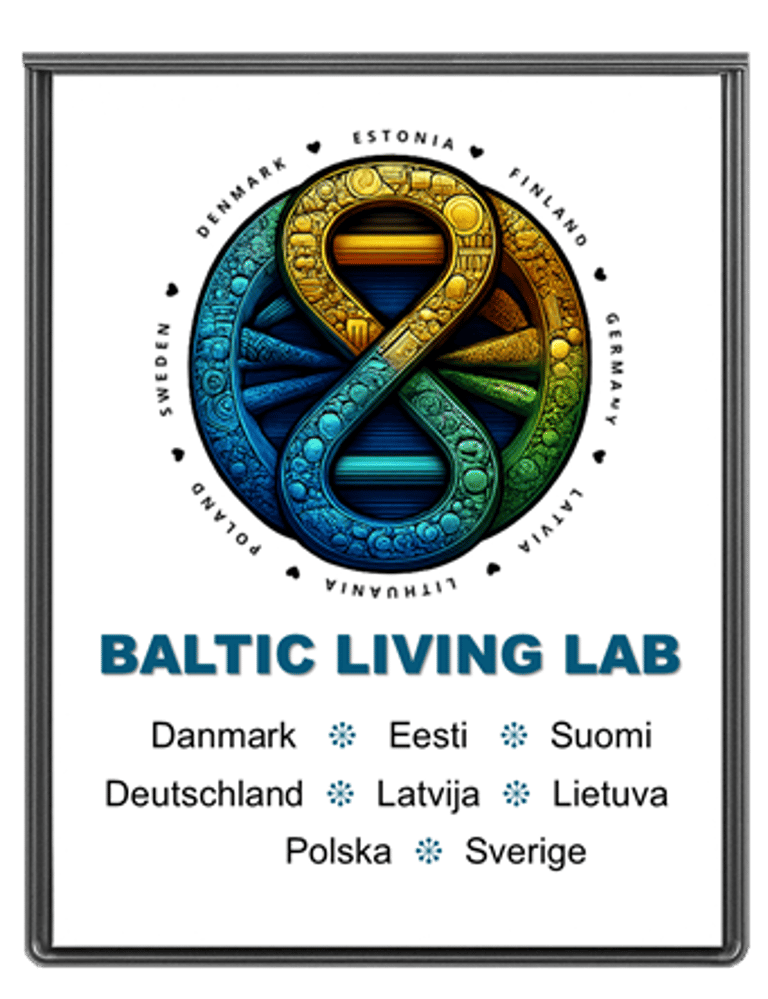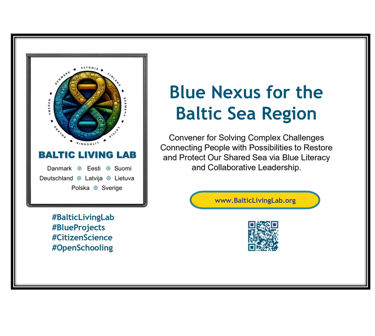Predicting the future by re-imagining the present
Convening the multiple-helix for problem-solving of SHARED environmental challenges FACING the baltic sea region
In a world facing the urgent challenges of climate change and biodiversity loss, fostering the next generation of Agents of Change that can serve as stewards of Earth's water bodies and natural resources has become critical. To address this need, the Baltic Living Lab was created to engage the eight countries bordering the Baltic Sea in activities aimed at increasing blue literacy by engaging students and teachers to implement the EU Mission Ocean’s objectives. It was developed as a dynamic and collaborative approach, one that brings together educators, students, and a network of diverse stakeholders to create meaningful change. At the heart of our vision is the establishment of a Community of Practice (CoP) that will drive the integration of blue literacy into formal education and non-formal learning environments to inspire sustainable actions among young people.

Engaging students to enhance blue literacy
The Baltic Sea is far more than a body of water — it is a lifeline to over 90 million people across eight EU nations. It weaves together the identities, economies, and futures of both coastal cities and inland rural communities, supporting everything from traditional livelihoods to cutting-edge industries.
For generations, it has been a source of Food security, through fisheries and aquaculture. It is one of the busiest transport and trade corridors of Europe, with approximately 200 ports ranging from large international hubs to smaller regional and industrial ports via bustling ports and shipping corridors . The eight EU countries bordering the Baltic Sea share a rich and diverse cultural heritage that is deeply rooted in a shared relationship with nature and the sea. This cultural connector fosters a strong tradition of respect for the environment, inter-generational knowledge, and community cohesion.The Baltic Region is a hotbed for innovation, leading the way in offshore wind energy, critical for Europe’s green transition, sustainable maritime transport and smart shipping corridors,; water technology includes nutrient reduction and circular solutions. The Blue Economy offers Jobs and economic development, particularly in coastal tourism, blue biotechnology, and marine services, as well as fisheries and aquacultures.
But this lifeline is under threat. Decades of nutrient pollution, unsustainable land practices, and warming temperatures have created the largest dead zone in Europe, choking oxygen from the seabed and endangering the food chain. Other environmental threats include over-fishing, marine litter, plastic pollution, and invasive species - the big 5. We believe the solution to common problems starts with connection. The Baltic Living Lab convenes schools, researchers, public institutions, and NGOs to co-create blue solutions through education, experimentation, and real-world collaboration. Our mission is to create the right environment, culture, and support systems that encourage people and organizations to think creatively to solve real-world problems
✅ Engage in community-powered citizen science ✅ Empower youth as agents of change
✅ Support Educators become effective learning facilitators of Blue Literacy
✅ Contribute to informed policy-making by driving policy with evidence and impact
Click to download our brochure
Addressing Environmental Challenges in the Baltic Sea
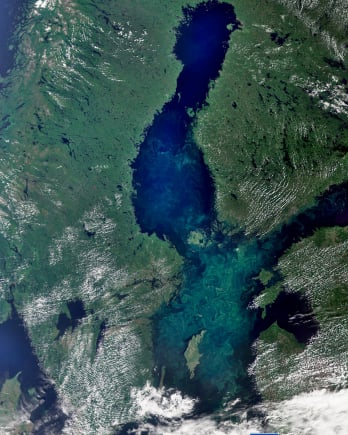

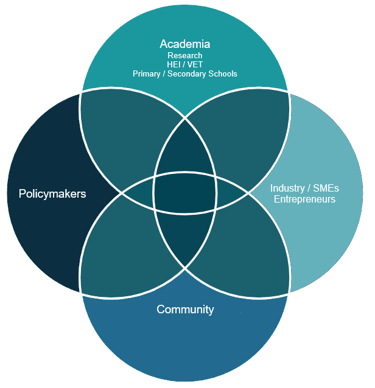

The Baltic Living Lab is a dynamic platform designed to tackle the complex challenges facing the Baltic Sea by activating Collaborative Leadership and working across multiple nexus—where critical systems intersect. From the water–climate–energy nexus to the education–policy–community connection, this living lab fosters holistic, cross-sectoral collaboration, bringing together schools, researchers, policymakers, NGOs, businesses, and citizens in a shared space of experimentation and dialogue. Participants co-create actionable solutions that address eutrophication, ecosystem degradation, and climate resilience—while also advancing innovation, equity, and sustainability.
By championing inclusive leadership and mutual learning, the Lab strengthens the links between science and society, governance and education, and local knowledge and regional policy. It empowers participants to listen deeply, act collectively, and lead boldly—turning shared responsibility into regional impact.
In the Baltic Living Lab, real change emerges not from silos, but from the synergy of perspectives and the willingness to lead together across borders and disciplines.
A Knowledge Hub for Collaborative Leadership
Across the Multiple Helix
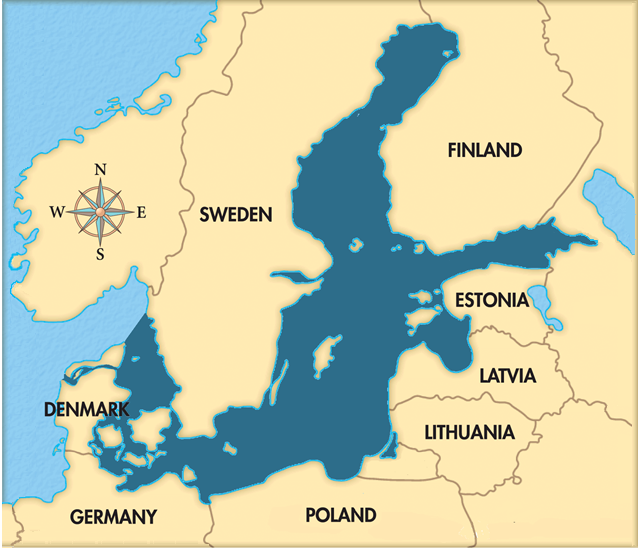

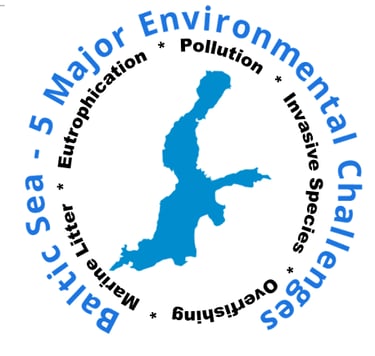

The Baltic Living Lab strengthens collaborative actions while fostering cross-border collaboration with other European basins, empowering residents, public bodies, and organizations to co-create solutions that deliver measurable environmental and social impact. Our diverse approach directly supports the EU Biodiversity Strategy 2030, the Nature Restoration Regulation, and the European Green Deal, as well as EU competency frameworks, and global initiatives like the SDGs, UNESCO Ocean Decade, and others. By participating in European programming like Horizon initiatives and Erasmus+ capacity building, we mobilize communities to generate FAIR-compliant data on biodiversity and ecosystem health, while embedding awareness and behavioral change through social marketing campaigns.
Impact is amplified through capacity-building programs, training educators, NGOs, and local leaders, and engaging tens of thousands of citizens in hands-on monitoring, awareness activities, and workshops. Networking platforms connect stakeholders across borders, ensuring that results are scalable, replicable, and policy-relevant.
The strategic expansion of the Baltic Living Lab ensures that investments yield long-term sustainability, with replication toolkits, multilingual resources, and partnerships that extend impact far beyond the project lifetime. In this way, BLL contributes directly to EU climate and biodiversity goals while creating resilient, empowered communities.
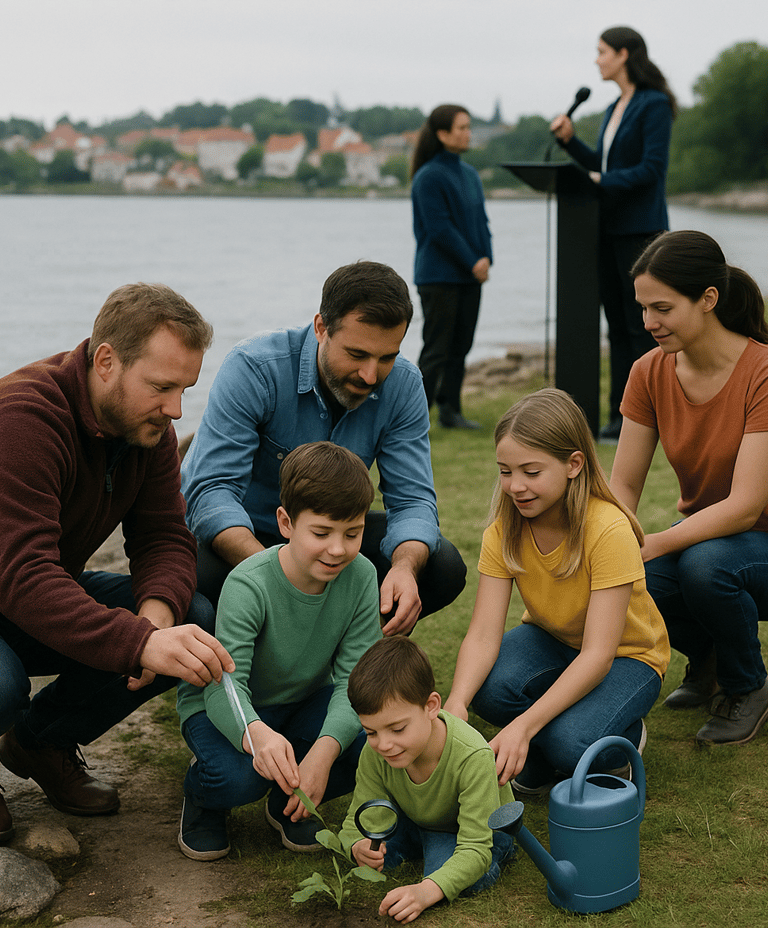

Driving Blue Literacy, Citizen Sensing, Informed Policymaking, Social Entrepreneurship for Sustainable impact
The Baltic Living Lab has evolved from its origins as a Horizon SHORE country hub engaging Estonian schools into a region-wide catalyst for innovation, collaboration, and sustainable transformation, scaling its impact for sustainability across the Baltic region. We serve as a convening mechanism targeting Denmark, Finland, Germany, Latvia, Lithuania, Poland, and Sweden. We also serve as the resource center for Iceland, Norway, and the Arctic region.
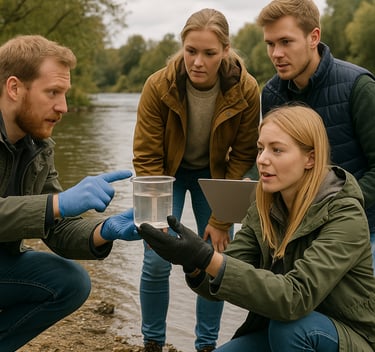

❉ Transnational and regional cooperation ❉ Partnerships between education, research, policy, NGOs, and business ❉ Sustainable technologies for oceans and coasts ❉ Nature-based solutions for ecosystem restoration ❉ Smart monitoring and digital tools ❉ Circular economy approaches to marine resources ❉ Scaling ideas from pilot to practice ❉ Cross-Sector Collaboration ❉ Co-creation of solutions with local communities ❉ Shared responsibility for the Baltic Sea ❉ Inclusive participation and knowledge exchange
Blue Education is the how — teaching and learning strategies that promote blue literacy
SUSTAINABILITY INSTRUCTION:
Blue education is the process of translating blue literacy into curricula, classroom activities, community engagement, and hands-on projects. Blue education regarding environmental challenges in Earth's water bodies, when combined with green education — addressing terrestrial environmental challenges — makes sustainability real and relevant through experiential learning, citizen science, and collaborative projects. In short, blue literacy is what we aim to build, and blue education is how we get there.
The Baltic Living Lab supports activities that align with the EU's Mission Ocean, the Green Deal, Digital4Sustainability, Pact for Skills, and the Digital Education Action Plan 2021-2027.
Of particular interest is our collaboration in DigiEduHack.com, the DEAP's flagship initiative.
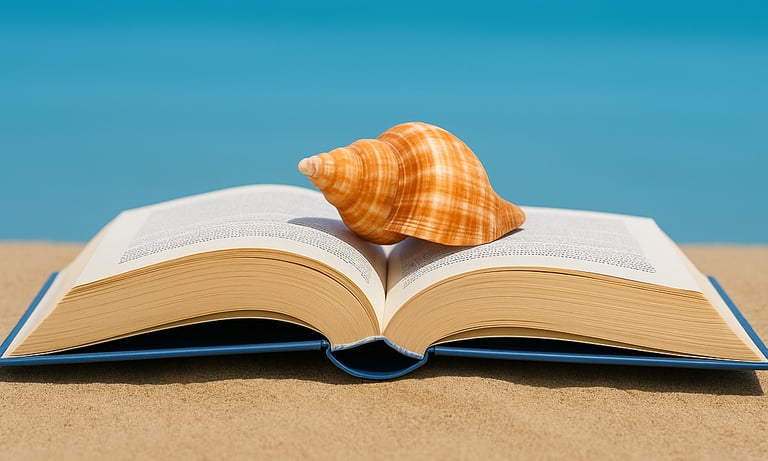

Blue Education embraces a rich variety of strategies that empower learners and educators alike—from structured lesson plans and curriculum pathways to hands-on environmental monitoring, citizen science, and immersive digital tools that connect classrooms to real-world challenges
Think of Blue Education as the what and why — the knowledge and values — that transform learners into Agents of Change and Stewards of planetary well-being
❉ Lesson Plans and Teaching Routes ❉ Water-Quality/Plastic Pollution monitoring and data reporting ❉ biodiversity surveys using citizen science apps
❉ Ideathons/DigiEduHack
The Baltic Living Lab's Community of Practice of educators and researchers, policymakers, Blue Economy industry leaders, NGOs, entrepreneurs, and every-day people explore proven tools, resources, and real-world examples that support sustainability instruction and spark long-term stewardship of our shared blue planet.
Understanding of how Earth's marine and freshwater systems influence life, climate, and ecosystems — and how human actions affect the health, resilience, and sustainability of these aquatic environments
Open-Schooling in Action.... transforming education into a community-centered, participatory process, where knowledge is co-created and applied to meaningful societal and environmental challenges. Learners, educators, and community members come together to explore real-life challenges, turning environmental issues into shared learning and solutions for a sustainable future
BLUE LITERACY:
Through dynamic open-schooling methodologies, these projects foster collaboration between students, educators, and the wider community — including local authorities, scientists, Blue Economy leaders, NGOs, and residents. By placing young learners at the center of real-world environmental challenges, the Baltic Living Lab encourages curiosity, co-creation, and actionable learning streams. The Baltic Living Lab showcases innovative Blue School projects designed to strengthen Blue Literacy across the hydrosphere — the interconnected system of all Earth's water bodies. This includes oceans, seas, rivers, lakes, ponds, wetlands, estuaries, reservoirs, groundwater, and watersheds, spanning both marine and freshwater environments.
Think of Blue Literacy as the what and why — the knowledge and values — that transforms learners into Agents of Change and Stewards of planetary well-being. All activities directly contribute to the EU Mission: “Restore Our Oceans and Waters by 2030”, empowering coastal and inland communities to become active stewards of their local aquatic ecosystems.
❉ multimedia public education campaigns ❉ Interactive board games/AR/VR ❉ Community Mapping & Action Plans ❉ Teacher Training guides on blue topics and pedagogy ❉ Exhibitions/Public Events ❉ Twinning programs and cross-border collaboration ❉ physical and virtual mobility between students, teachers, and school administrators ❉ Co-creation workshops with local scientists, NGOs, and fishers ❉ Open access publications
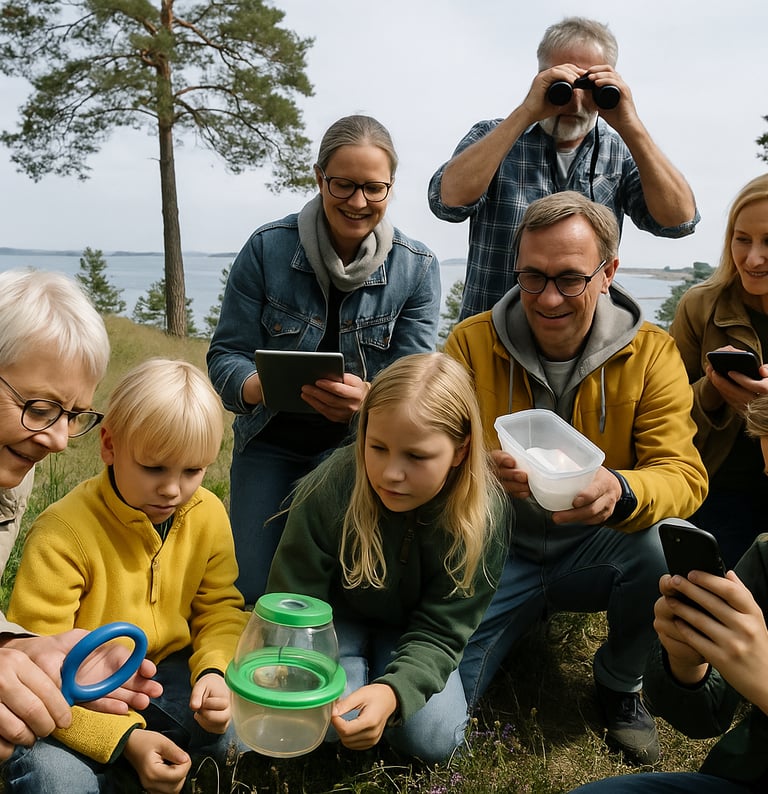

Citizen sensing is a participatory approach to data collection and monitoring in which ordinary citizens use everyday technologies—such as smartphones, low-cost sensors, or online platformsto observe, measure, and report conditions in their environment or community.
Citizen sensing combines technology + civic engagement:
Citizens act as data collectors (not just passive recipients of information).
Sensors and digital tools capture data (e.g., air quality, noise, traffic, temperature).
Shared platforms aggregate and visualize the data.
Communities and decision-makers use the insights to raise awareness, influence policy, or trigger action.
Typical examples
Residents measuring air pollution with low-cost particulate sensors
Neighbors tracking noise levels around airports or nightlife areas
Citizens reporting urban issues (heat islands, flooding, traffic congestion) via apps
Community monitoring of water quality or local biodiversity
Key characteristics
Bottom-up: initiated or co-created by citizens rather than only authorities
Participatory: emphasizes engagement, learning, and empowerment
Data-driven: relies on measurable evidence, often in real time
Civic-oriented: aims at social change, accountability, or policy dialogue
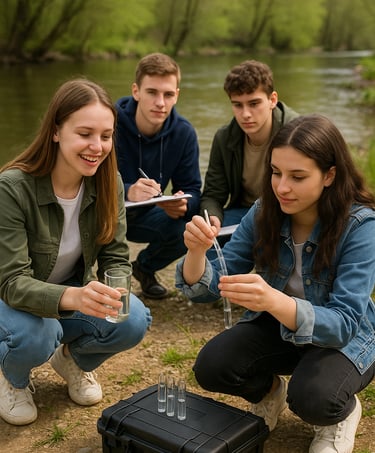

Hands-on experiential learning promotes citizen science at an early age, where students from primary- and secondary-school classrooms actively collect and analyze environmental data, share their experience through storytelling, and connecting with their community to inspire change
Citizen Sensing
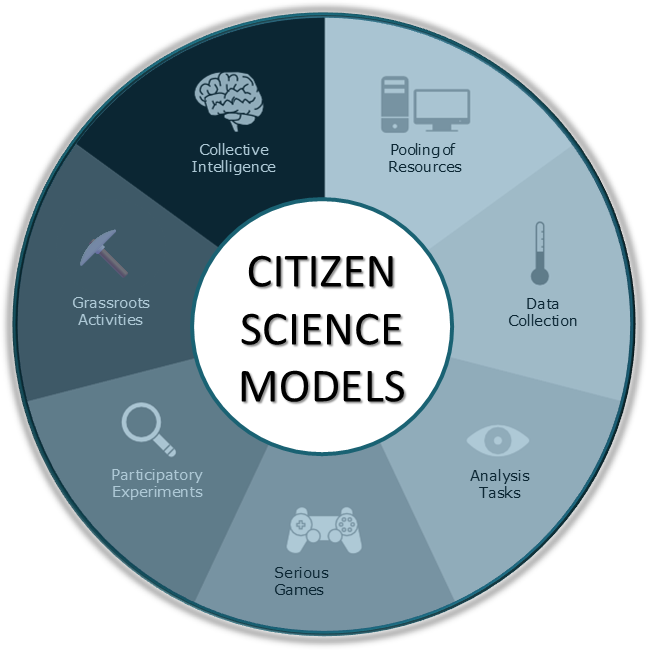

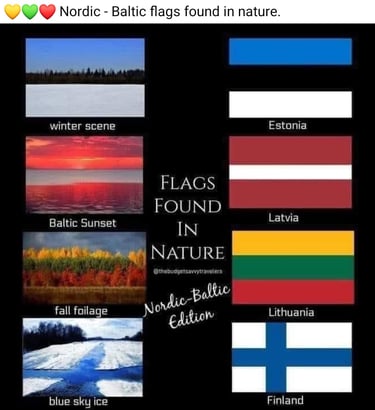

❉ Awareness & Understanding ❉ Inter-connectedness of climate and water bodies ❉ Biodiversity and Ecosystems ❉ Human Impact affecting both marine and terrestrial ecosystems (pollution, overfishing, agricultural run-off, deforestation, fossil fuels, urbanization, bottom trawling, noise pollution, resource extraction) ❉ stewardship and sustainability behavior
Citizen Science, on the other hand, involves a broad network of people able to collaborate under expert-designed research projects, usually led by an institution of higher learning, public body, or research center These can include people of all ages, from all sectors, at any stage of the learning process. Participants who engage in citizen science provide experimental data and facilities for researchers, raise new questions, and co-create a new scientific culture. While they add value, volunteers acquire new learning and skills and gain a deeper understanding of the scientific work in appealing ways. As a result of this open, networked and transdisciplinary scenario, science-society-policy interactions are improved, leading in turn to a more democratic research based on evidence and informed decision-making.
Connecting people of all ages with science through engaging and impactful experiences.
At Baltic Living Lab, we bring science closer to people’s daily lives through active, creative, and collaborative experiences. Our work goes beyond simply presenting information — we design opportunities where communities, educators, policymakers, and stakeholders can explore science together in meaningful, hands-on ways.
We follow the principle that “Tell me and I forget. Teach me and I remember. Involve me and I learn.” True understanding comes through participation. That’s why our approach emphasizes involvement — encouraging people not just to listen, but to observe, test, and reflect for themselves.
A key part of this process is collective problem solving. By tackling real-world environmental and societal challenges, participants develop and practice transversal skills that extend far beyond science: critical thinking, effective communication, teamwork, and creativity. These skills are not only essential for addressing complex issues in communities, but are also highly valued by employers as they foster adaptability, innovation, and collaboration.
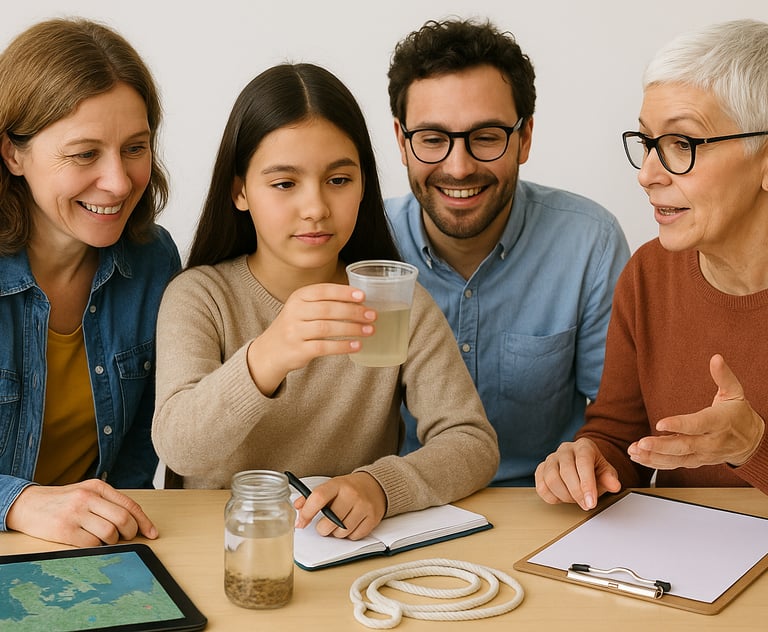

"Tell me, but most likely I will Forget.
Teach me and maybe I will Remember.
But Involve me, and I Learn"
SCIENCE COMMUNICATION
Our goal: Empower everyone to better understand science and feel confident taking informed action on the issues that matter most.
We also embrace the Collaborative Leadership process — an approach where leadership is shared rather than centralized. Instead of one voice directing the path, diverse participants contribute their perspectives, knowledge, and skills to co-create solutions. This process values inclusivity, mutual respect, and joint responsibility, making it possible to address complex challenges that no single actor could solve alone. In practice, this means that every participant has a role in shaping outcomes, building trust, and strengthening both individual and collective capacity to act.
Through dialogue, exploration, and co-creation, we empower individuals and groups to connect scientific knowledge with practical action. With positive storytelling and participatory engagement, we open spaces where people can confidently ask questions, exchange perspectives, and contribute to sustainable solutions that matter to our region and beyond.
❉ School ecosystems ❉ educators in formal education and learning facilitators in non-formal learning environments ❉ policymakers ❉ stakeholders
Innovative Blue Projects
Connecting our readers with innovative blue school projects supporting the EU mission ocean.
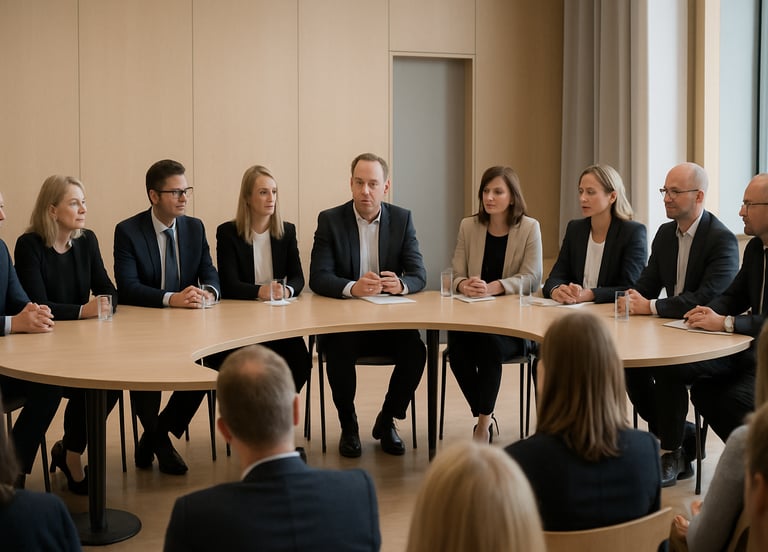

Explore Blue Literacy Practices
Engage with projects driving change across Europe and beyond.
Funding Opportunities Dialogue
Discuss future funding for blue projects and initiatives with stakeholders.
Project Review Insights
Access insights into existing projects fostering transparency and collaboration in blue economy.
CONGRATULATIONS to the Baltic Region open call awardees of funding from the Horizon initiative "Restore Our Oceans and Waters by 2030" sister projects:
Kadrioru Saksa Gümnaasium (Estonia) - LVR Project
Räpina Ühisgümnaasium (Estonia) - EHWW Project
Gustav Adolf Gymnasium (Estonia) - BSP Project
Klasika Private Secondary School (Latvia) - B-BAAG LLC “ANT”
Panevėžio Žemynos Progymnasium (Lithuania) - BMBF Project
Morska Szkoła Podstawowa (Poland) - BBG-MSP Project
III Liceum Ogólnokształcące (Poland) - Y4WATERS Project
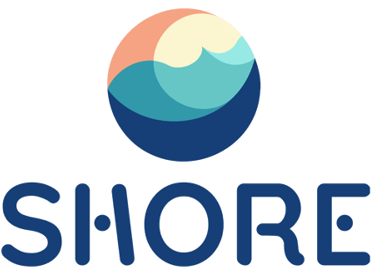

Kohila Gümnaasium (Estonia) Every drop finds its way to a river and from there to the sea
Loksa Gymnasium (Estonia) River/Sea Study
Otaniemi upper secondary school (Finland) The ABC of Baltic Sea Literacy
Priekule Secondary School (Latvia) - Water Quality Monitoring of the Vārtāja River
Cēsu Jaunā vidusskola (Latvia) Awareness Through Education and research: Working to Improve Student Engagement
Kaletu Music and Art School (Latvia) Shrek kids - swamp inhabitants
Prienai “Ziburys” gymnasium (Lithuania) The deceptive face of plastic
Liceum Ogólnokształcące nr XV we Wrocławiu (Poland) A drop without plastic - together for the future
Szkoła Podstawowa im. Partyzantów Armii Krajowej Ziemi Kieleckiej w Sukowie (Poland) L.O.C.K. – Lubrzanka: Observe, Conserve and Keep
Hunnebostrands skola (Sweden) BlueSchool Pilot Hunnebostrand
Strömstad Gymnasium (Sweden) - Introducing marine sustainable food resources in Life at Sea
https://probleu.school
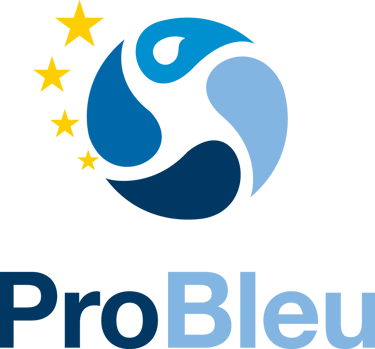

New wave of projects has secured funding under the latest EU Mission Ocean and Waters calls
ECO-CATCH addresses the urgent need for effective bycatch and habitat protection measures in Baltic and North Sea fisheries, where current mitigation tools fall short of the EU Biodiversity Strategy 2030 goals. The project aims to mature and deploy ten innovative technologies — including digital tools, Bycatch Reduction Devices (BRDs), and alternative fishing gears — bringing them to high readiness levels (TRL 7—8). Core innovations include real-time AI detectors installed in trawls and on vessels, providing data to Wheelhouse Visualisers that help fishers optimize catch efñciency while avoiding sensitive habitats. Where BRDs are less effective, alternative gears will offer cost-effective solutions that maintain commercial viability.
COORDINATING BENEFICIARY:
Technical University of Denmark
PARTICIPATING COUNTRIES
DK, NO, BE, DE, SE, UK,
LU, FI, NL
Baltic and North Sea basin lighthouse - Reducing the environmental impacts of fisheries on marine species and habitats
BLUEACTION BANOS supports the EU Mission Ocean and the European Green Deal by driving biodiversity conservation, pollution reduction, and the transition to a climate-neutral blue economy in BANOS (Baltic and North Seas). The overarching objective of the project is to facilitate the successful transition from Phase 1 to Phase 2 of the Mission Ocean, where solutions piloted in the early stages are scaled up and deployed across a broader spectrum within the Baltic and North Sea Lighthouse Area. To that end, BAB aims to mobilise and provide practical and easily accessible support to a diverse set of established or emerging Communities of actors to implement innovative and impactful actions and measures to restore our ocean, seas and waters. BAB will achieve this by providing targeted financial assistance, technical guidance, and strategic knowledge-sharing, equipping communities with the tools and resources they need to address complex environmental challenges and drive sustainable transformation at local, regional, and national levels.
COORDINATING BENEFICIARY:
Submariner Network for Blue Growth
PARTICIPATING COUNTRIES
DE, PL, ES, BE, SE, DK, Fi,
LV, EE, LT, NO, NL
Baltic and North Sea basin lighthouse area
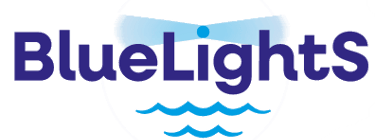

https://blue-lights.eu
After an initial three-year R&D phase, the final two years will focus on large-scale demonstration and commercial exploitation. Technologies will be tested in real-world conditions, integrated into existing production lines, and adopted by four pilot fleets using new business models. Six SMEs in the consortium will drive market uptake, while streamlined certification processes will support broader scalability and replicability across regions. With C400,000 in reserve funds, ECO-CATCH will collaborate with sister projects and remain flexible to overcome commercialization challenges during the demonstration phase. Spanning the entire fisheries value chain, the consortium‘s expertise — from gear development to policy advising — ensures strong long-term impact. ECO-CATCH will help the fishing industry contribute directly to the EU Green Deal target of protecting 30% of marine areas and to the UN SDG 14.4 on eliminating destructive fishing practices.
Oriveden lukio The Next Wave (Finland)
Vaasan lyseon lukio Baltic Sea Actions (Finland)
Klaipėda "Varpas" gymnasium Sea Change: Empowering Students for a Carbon-Neutral Coast (Lithuania)
Kazimierza Nowak Primary School The Watershed of the Future (Poland)
II Liceum Ogólnokształcące im. Wojciecha Kilara Our Gardens, Your Oceans – Connecting Local Biodiversity with Global Water Awareness (Poland)
Oriveden yhteiskoulu Baltic sea matters (Finland)
Salo upper secondary school The Baltic Sea Course (Finland)
Viljandi Gumnaasium MicWat2024 - Microplastic in the waters around us (Estonia)
On the Reserve List: Hiidenkivi comprehensive school Phenomenon-based learning of eutrophication of the Baltic Sea (Finland) Lempaala upper secondary school LARB - Lake Ahtialanjarvi restored for birds (Finland) Oriveden lukio Protecting Our Baltic Sea (Finland) Otaniemi upper secondary school Sea conference for high school students (Finland) Kilteri school AmRiVa - Amazing River Vantaa (Finland)
Opportunities for Collaboration
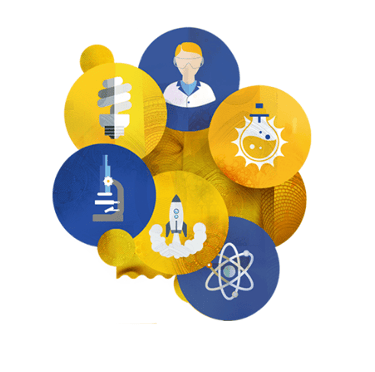

Collaboration for E-Twinning/Mobility
Key Actions
Cooperation partnerships in school education (KA220-SCH) - This action enables participating organizations to gain experience in international cooperation and to strengthen their capacities, but also to produce high-quality innovative deliverables. The primary goal of Cooperation Partnerships is to allow organizations to increase the quality and relevance of their activities, to develop and reinforce their networks of partners, to increase their capacity to operate jointly at transnational level, boosting internationalization of their activities and through exchanging or developing new practices and methods as well as sharing and confronting ideas. Submission deadline: 05/03/2026
Erasmus+ Centralized Actions (managed by EACEA)
3 February 2026 – Jean Monnet Actions
10 February 2026 – Capacity building in higher education
26 February 2026 – Capacity building in youth; United European Youth (KA3)
10 March 2026 – Alliances for Innovation
26 March 2026 – Capacity building in VET and Erasmus+ Virtual Exchanges
The Erasmus+ Programme Guide 2026 is out
The European Commission has published the new Erasmus+ Programme Guide 2026, which is an integral part of the 2026 Call for Proposals and sets out priorities, funding rules and deadlines for the current 2021–2027 programme.
With a budget of around €5.2 billion for 2026, Erasmus+ continues to invest strongly in mobility, cooperation and innovation in education, training, youth and sport.
What’s new in 2026? Key challenges for project design: While the overall structure of Erasmus+ remains familiar, the 2026 Guide sharpens several priorities compared to 2025. Here are some of the most relevant updates and challenges for applicants
Micro-credentials and flexible learning pathways - Micro-credentials are clearly promoted as short, high-quality, stackable learning units that support flexible and lifelong learning, particularly in VET and adult education. The Guide encourages providers to design transparent, quality-assured micro-credentials aligned with the EU Recommendation on a European approach to micro-credentials.
Girls in STEM: from awareness to measurable impact - STEM-related projects are invited to show baseline data, targeted interventions and clear monitoring tools to support girls’ participation and success in STEM pathways.
Greener mobility under 500 km - For distances under 500 km, low-carbon travel becomes the default. The choice of transport now impacts quality scoring, not only budget lines.
Inclusion and diversity: stronger requirements - Inclusion of participants with fewer opportunities is further reinforced in the evaluation criteria and higher expectations in outreach strategies, tailored support and accessibility.:
Mental health and wellbeing made explicit - Wellbeing is now clearly highlighted, especially in school education and VET. requiring concrete tools, activities and indicators.
New KA2 action: EPSD - A major novelty of 2026 is the introduction of European Partnerships for School Development, designed to help schools embed international activities into their everyday work, develop “mobility windows”, and build stable networks around basic skills, participation and democratic values.
Stronger link to EU skills and preparedness strategies - The Guide now connects more explicitly to the Union of Skills and Preparedness Union Strategy: projects aligned with green/digital transitions and crisis-responsive learning systems are strongly encouraged.
In short: priorities remain stable, but expectations are higher—especially for mental health, inclusion, gender equality in STEM, green mobility, and skills-based learning.
Key Erasmus+ 2026 deadlines: Below is the overview of key deadlines. For full details, please refer to the official Call for Proposals and Program Guide.
Key Action 1 – Learning mobility of individuals
12 February 2026 – Mobility of individuals in the field of youth
19 February 2026 – Mobility of individuals in
higher education
vocational education and training (VET)
school education
adult education
international mobility with third countries not associated to the Programme
26 March 2026 – Erasmus+ Virtual Exchanges
1 October 2026 – Second-round deadline for youth mobility projects
29 September 2026 – Erasmus accreditations in VET, school and adult education; Erasmus accreditations in the field of youth
Key Action 2 – Cooperation among organizations and institutions
5 March 2026 –
Cooperation Partnerships in education, training and youth (KA220)
Small-scale Partnerships in school education, VET, adult education and youth (KA210)
Partnerships for cooperation in the field of sport
9 April 2026 – European School Development Partnerships (new action)
3 September 2026 – Centres of Vocational Excellence
Additional sector-specific deadlines – including sport and large-scale events – are available in the official documentation.

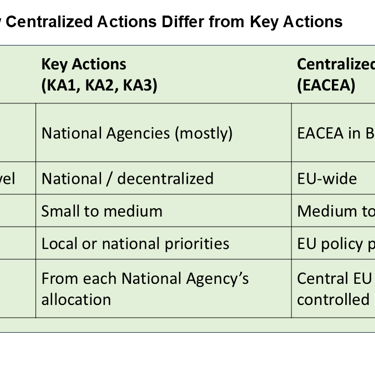
Explore the Baltic Living Lab Blog:
Collaboration, Sustainability, EU Mission Ocean Insights
Explore the Baltic Living Lab Blog, the SHORE Resource Hub powered by Horizon Europe in support of the EU Mission Ocean. This dissemination mechanism brings together educators, researchers, policymakers, NGOs, community leaders, and citizen scientists across eight Baltic Sea EU member states. Dive into deep discussions on citizen science, blue education sustainability instruction, sustainable innovation, and collaborative multi-helix problem-solving to protect and preserve this vital regional ecosystem. From cross-border projects to innovative marine- and freshwater ecosystem learning initiatives, the blog delivers inspiring stories, practical insights, research findings, and policy updates. Whether readers are educators seeking blue literacy resources, researchers exploring marine innovation, representing an NGO like us, advocating for coastal resilience, or a policymaker shaping sustainable strategies, this blog invites you to engage, contribute, and connect. Join our growing network committed to safeguarding the Baltic Sea’s rich natural heritage through shared knowledge, hands-on initiatives, and future-focused collaboration.
#BalticLivingLab #CitizenScience #BalticSea #BlueEconomy #BlueLiteracy #Blue Education #hydrosphere #CrossBorderCollaboration #BalticRegion #BalticInnovation #BalticSustainability #CoastalResilience #eutrophication #biodiversity #habitat #freshwaterecosystems #TwinTransition
Addressing environmental challenges via Blue Literacy
Targeting the eight EU Countries
Bordering the Baltic Sea
★★★★★★★★
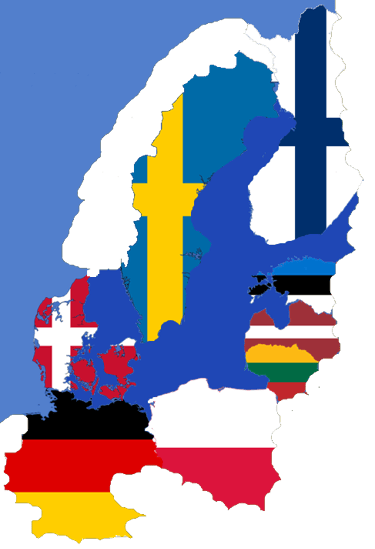

★ Denmark ★
★ Estonia ★
★ Latvia ★
★ Lithuania ★
★ Poland ★
★ Germany ★
★ Sweden ★
★ Finland ★
Connect
Collaborate
info@BalticLivingLab.org
© 2025. All rights reserved.
Views and opinions expressed are those of the author(s) only and do not necessarily reflect those of the European Union or the European Commission.
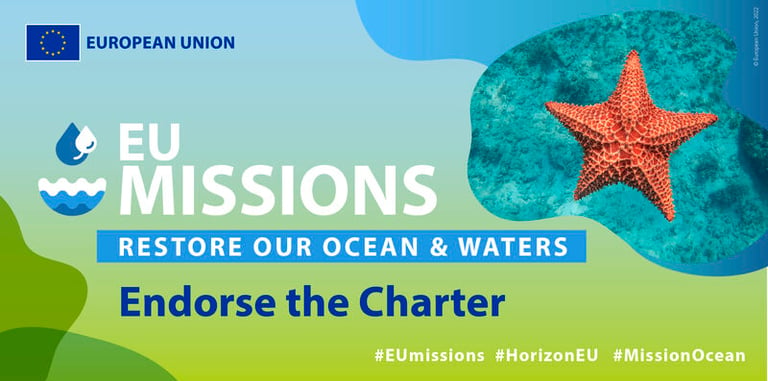

In Support of the EU Mission Ocean
Created and supported by
Global Skills Network, Estonia,
as a resource hub for the
Horizon sister projects,
three Mission Ocean and Waters
projects funded by the EU’s
Horizon Europe Research & Innovation
Program.
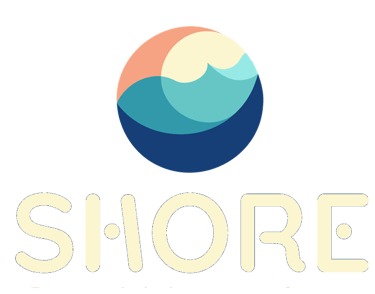

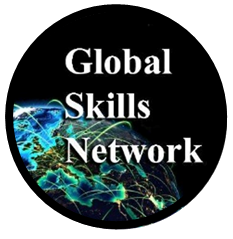

PRO-BLEU
